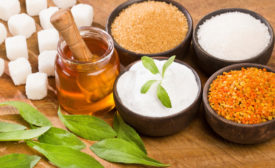Home » Keywords: » prebiotics
Items Tagged with 'prebiotics'
ARTICLES
Reduced sugar is the sweet spot for dairy processors
Consumer demand for healthier beverages is not expected to wane any time soon.
March 23, 2023
An introduction to probiotics
Probiotics are friendly microbes that safely enhance nutritional value in dairy products.
October 14, 2022
Holistic health trend is driving dairy processor innovation
Consumers are looking for functional ingredients that support both physical and mental health.
May 19, 2022
New postbiotics support a healthy microbiome
Higher diversity is the hallmark of a healthy gut microbiome.
April 18, 2022
Probiotics, prebiotics are natural partners for dairy
These ingredients can attract today’s health-concerned shoppers.
December 6, 2021
Enhance nutrition in cultured dairy products
Vitamins, minerals and prebiotics spell opportunity.
November 22, 2021
Promote healthy aging with dairy
Fortifying dairy products with certain ingredients can attract consumers looking to maintain a high quality of life as they get older.
August 3, 2021
Galam opens two new prebiotic fiber-producing plants
The facilities will make fructo oligosaccharides/oligofructose.
September 14, 2020
Get our new eMagazine delivered to your inbox every month.
Stay in the know on the latest dairy industry trends.
SUBSCRIBE TODAYCopyright ©2024. All Rights Reserved BNP Media.
Design, CMS, Hosting & Web Development :: ePublishing








.jpg?height=168&t=1639062115&width=275)






